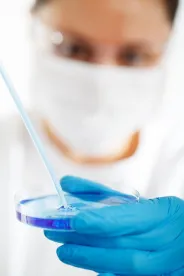To formulate a better regulatory environment for the alternative protein industry to thrive, the South Korean government is taking action to support the industry by including it in the National Plan 2022. Specifically, the Ministry of Food and Drug Safety (MFDS) is calling for accelerating the development of official guidance for alternative proteins by establishing:
-
a management system for safety evaluation and the manufacturing process of cultivated meat, and
-
new food additives recognition standards applying to foods produced by using new technology, including alternative protein foods.[1]
These guidance documents are expected to be finalized in 2022 and provide the new framework to clear alternative proteins such as cultivated meat in South Korea.
Currently, there is no unified regulatory scheme for alternative proteins derived from Korea’s various sources. However, for certain types of alternative proteins, e.g., edible insects and microorganism-derived proteins, progress has been made ahead of the cultivated meat sector. For instance, Korea has released a set of detailed regulations and rules governing the review of edible insects as new food ingredients, including clarification on qualifying criteria and standards. The Korean Food Code[2] also has set forth the maximum level of heavy metal specifically for the edible insect category. For the cultivated meat category, as noted above, the legal framework is being worked out by the Korean government given the unique technical aspects associated with the category, e.g., the selection of safe cell lines, the safety of donor animals and tissues, and the use of culture media and scaffolding materials. Thus, additional requirements are likely to be introduced under the review process of new food ingredients to properly capture the safety evaluation of cultivated meat products and clear their use in South Korea.
In addition to the evaluation and clearance of cultivated meat, the South Korean government has not officially commented on its labeling, e.g., whether terms such as “meat” may be permissible for use in describing cultivated meat. Korea’s Agro Fisheries and Food Trade Corporation indicated that meat substitutes used to be labeled as artificial meat, fake meat, or “bean meat”; while nowadays, terms like “meat substitute” or “meat alternative” are more commonly used to refer to food products that can replace meat products.[3] It remains to be seen how this will play out under the new regulatory framework of cultivated meat.
While the government endeavors to establish a regulatory framework for the industry, food companies in South Korea are making great progress with new alternative protein products. To name a few in the cultivated food industry, in June 2022, Simple Planet announced a breakthrough by developing cultivated meat with a higher content of unsaturated fatty acids, which is regarded as the first company in the country to reach such an achievement.[4] In March 2022, a cellular agriculture startup, Space F, unveiled new innovations, including South Korea’s first cultivated chicken and beef prototypes, as well as new pork 2.0.[5] In addition, South Korea’s leading food culture company, CJ CheilJedang, is collaborating with KCell Biosciences, a startup focused on cell culture media, to build a cell culture media facility in Busan later this year which is expected to offer the largest capacity for cell culture medium production in South Korea and the second largest in the Asia Pacific region. The media is calling out South Korea as an innovation hub to watch in 2022.[6] More progress in the food culture space is certainly to be expected in South Korea.
ENDNOTES
[2] https://www.law.go.kr/LSW//admRulLsInfoP.do?chrClsCd=&admRulSeq=2100000211557.
[4] https://www.greenqueen.com.hk/simple-planet-unveils-healthier-cultivated-meat/.
[5] https://www.greenqueen.com.hk/space-f-korea-first-cultivated-beef-chicken/
[6] https://www.greenqueen.com.hk/south-korea-alt-protein-sector-growth/.





 />i
/>i

